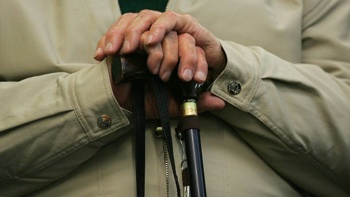An Auckland homeowner was so fed up with the violent and abusive behaviour of his state house neighbours he sold his property and moved to the South Island to protect his family.
Karan Gosain, 35, bought the newly-built Papakura home in November 2019 for $680,000, oblivious that the house next door was owned by Kāinga Ora.
He told the Herald the next 12 months were made hell by the neighbouring tenants' alleged violent, antisocial and intimidatory actions.
It's understood police have been called to the property at least 50 times to respond to reports of domestic violence, street brawls and other alleged crime.
Residents have made numerous complaints to Kāinga Ora about fighting, loud noise, foul language, dumped rubbish, illegally parked cars blocking neighbours' driveways and other antisocial behaviour destroying the area's peaceful amenity.
They set up Facebook groups to share concerns and co-ordinate their response to the property's unruly occupants, one of whom is believed to have gang links.
Growing increasingly desperate, Gosain - a foreign exchange dealer - wrote to Housing Minister Megan Woods, Prime Minister Jacinda Ardern and National leader Judith Collins in a bid to have the tenants moved on, or evicted.
But in an email to a Kāinga Ora tenancy manager in January this year, Gosain said his family could no longer stand the "abuse and outright hostility" they had endured over the previous 12 months and were listing their property for sale.
"This is not what I want my 2-year-old daughter to be exposed to growing up," the email said.
"I am a strong supporter of the experiment to break the inter-generational cycle of dependence on the state and provide role models for the next generation to create a better society.
"But the lack of any consequence for anti-social behaviour is leading to a feeling of absolute impunity and creating unease amongst the community."
Gosain told the Herald Kāinga Ora staff told residents they were hamstrung by an internal policy that stops the agency evicting difficult tenants to prevent them being recycled through emergency and transitional housing at further cost.
But the policy was making collateral damage out of innocent homeowners who were unfortunate enough to reside next to state housing, Gosain said.
It was also unfair to the vast number of deserving families desperate for accommodation who were languishing on state house waiting lists.
Gosain sold his property in March for $850,000, which he said was about $50,000 below market value.
He had struggled to find a buyer, with open homes overshadowed by his shirtless neighbours blaring music and "flipping the bird".
"I just couldn't see myself rearing my kid next to that family. It was unsafe."
South Auckland councillor Daniel Newman said the tenants had been a "recidivist problem" for the duration of their tenancy.
But a Government "kindness" directive to go soft on bad apples had been applied by senior Kāinga Ora management to the detriment of the wider community, he said.
"Kāinga Ora has failed to contain a pattern of disruptive freeloading on vulnerable communities in South Auckland.
"New Zealand taxpayers deserve better than being held to ransom by s**t tenants.
"There are first homebuyers who have sweated and sacrificed for the opportunity to get on the property ladder and they deserve to have quiet enjoyment of their home."
The Papakura case mirrors other horror stories highlighted by the Herald, including Whangarei pensioners who say they are being terrorised by their Kāinga Ora neighbours, and an Orakei barrister who is seeking a restraining order against her neighbouring statehouse tenants following a campaign of intimidation and abuse.
Kāinga Ora denies there is any Government directive but admits evictions are a last resort reserved for "extreme" cases.
The agency's Auckland and Northland deputy chief executive Caroline Butterworth said it took complaints about disruptive behaviour seriously.
It wanted its customers and the communities they live in to thrive.
Complaints often involved associates or extended whānau of clients. The agency worked hard to resolve problems and connect clients to help for things like financial pressures or mental health issues.
But this had been made harder during the prolonged lockdown, which prevented face-to-face engagement with tenants.
While the agency had the legal right to evict tenants, this could result in worse long-term outcomes for clients and their families.
Kāinga Ora preferred to "sustain" tenancies where possible, or find suitable alternative homes for its clients.
Counties Manukau South relieving Area Commander Joe Hunter said police were aware of issues and community frustration in this area regarding a particular address.
"Police have responded regularly to calls for service and have intervened as appropriate.
"It's not okay for anyone in our community to feel unsafe in their home and so area staff are proactively patrolling in this area."
Anyone who felt unsafe should call 111.
Take your Radio, Podcasts and Music with you









